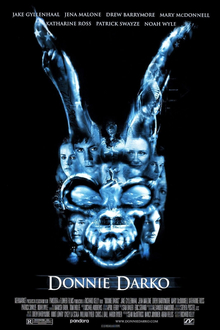[article from www.timetochange.org.uk]
The article featured the opinion of psychiatrist and film expert Dr Peter Byrne, whose opinion was that representation of mental illness in film is more negative and 'crueler' than ever. He explains that he thinks recent blockbuster films such as The Dark Knight (2008) are increasingly representing sufferers of mental illnesses as violent and unpredictable; furthering negative stereotypes.
After reading the article, I thought about films that I had seen that featured characters with mental illness, and how this issue was handled within the film;
THE DARK KNIGHT (2008)
Before the article, I hadn't considered the depiction of mental illness in the Dark Knight (despite the fact that is was a massively famous film, and one of my favourites) and am still not quite sure whether it can be grouped in with the other films I am going to look at. The Joker is portrayed as psychopathic and somewhat schizophrenic, with Batman describing him as 'schizophrenic' within the film. The character displays the typical negative stereotype of a schizophrenic - multiple personalities - with one of them evil, out of control and a danger to others.
GIRL, INTERRUPTED (1999)
Before I watched this film, I was interested in how a film where all of the main characters have a psychological problem of some sort would represent these characters. It's rare that the topic of mental illness is the focus of a film; this film follows the story of 18 year old Susannah who has just been checked into a psychiatric hospital after attempting suicide. She soon meets the other patients of the hospital, which gives the film a chance to accurately represent an array of different mental illnesses. It does reach it's potential in some respects as it shows the negative impact of ignorance on the girl's lives and it touches upon some of the less well publicised impacts of mental illness on somebody's life. However, it also features negative stereotypes, such as people with mental illness being weak, needy or manipulative and doesn't put enough into making clear that these are traits of the character, not of their illness.
BLACK SWAN (2011)
Despite the fact that 'Black Swan' is more of a psychological horror film than a film about mental illness, in my opinion it can clearly be regarded as a metaphor or exploration into this subject.
DONNIE DARKO (2001)
Another psychological horror film that depicts mental illness in a more metaphorical way, Donnie Darko is now quite popular, a 'cult' film. Scenes of Donnie speaking to his psychiatrist are scattered throughout the film, and the whole narrative of the film is seen from Donnie's perspective, meaning that the entire storyline is quite ambiguous. It blurs the line between reality through the eyes of the 'sane' viewer and reality through the eyes of Donnie, leaving the viewer in the dark as to how much of what plays out is simply a creation of his mind. It also questions whether this actually matters - if your mind is telling you that something is
Another psychological horror film that depicts mental illness in a more metaphorical way, Donnie Darko is now quite popular, a 'cult' film. Scenes of Donnie speaking to his psychiatrist are scattered throughout the film, and the whole narrative of the film is seen from Donnie's perspective, meaning that the entire storyline is quite ambiguous. It blurs the line between reality through the eyes of the 'sane' viewer and reality through the eyes of Donnie, leaving the viewer in the dark as to how much of what plays out is simply a creation of his mind. It also questions whether this actually matters - if your mind is telling you that something is
A BEAUTIFUL MIND (2001)



.jpg)


